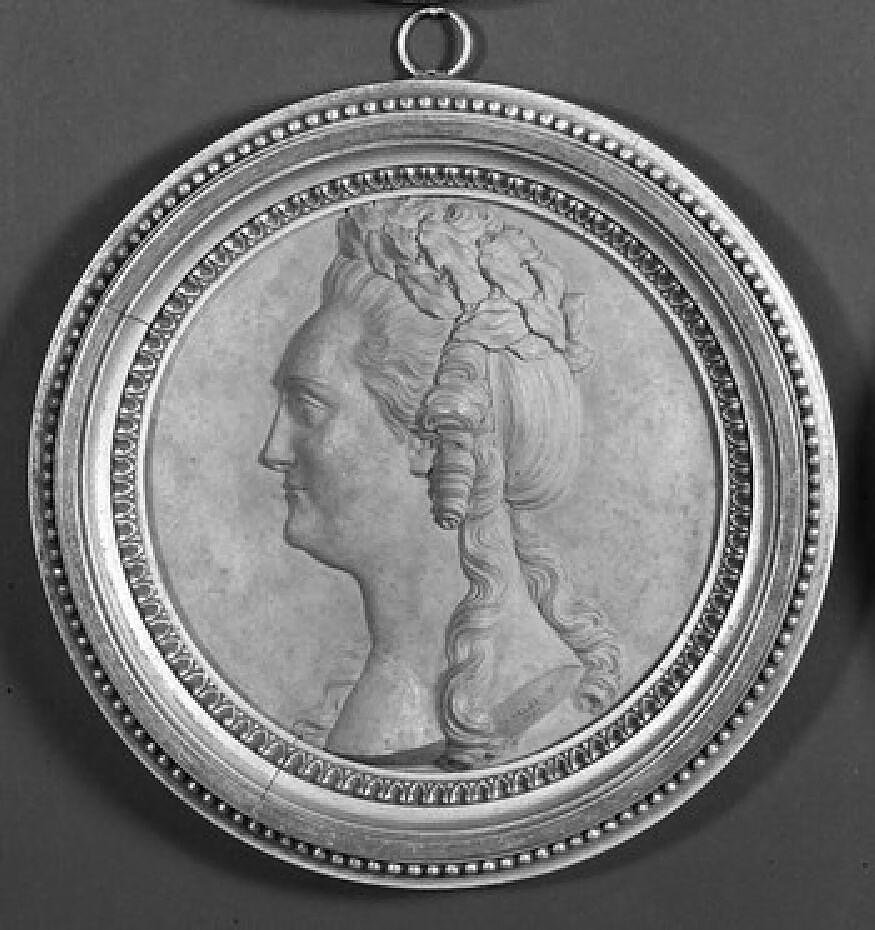TheDeal
28 04, 24 07:04 Filed under: Fambly

Giovanni Battista Nini: Catherine II (1771)
"Edens tend to come exclusively in their most primitive form."
By the end of The Seven Years' War, the surviving inhabitants of Germany were rightfully exhausted. Once again, squabbling between the crowned heads had devastated their lives. My Alsatian ancestors, still recovering from the Thirty Years' War and The Black Death's devastation, faced yet another displacement. Other German duchies had it worse. Catherine II, the former Prussian princess who'd married into the role of Empress of Russia before displacing her hapless husband once his heir was born, desired to bring Russia up to European economic standards so that she might continue financing her wars of acquisition. Russia remained a nation of serfs, still clinging to the Middle Ages, where a few wealthy landowners held the bulk of the labor captive. There was no entrepreneurial or independent farmer class; there were just serfs and sharecroppers who were successfully enjoined from demonstrating initiative on their own or even on the country's behalf. Catherine had recently won vast tracts of land from wars with Turkey and needed settlers to populate this largely uncultivated country. She proposed a deal she hoped might jump-start the languishing Russian economy to compete with Europe and the rest of the world while bringing that idle land into production.
In 1763, she issued a manifesto offering some rights and privileges to incoming foreign settlers. Interestingly, she did not extend these rights to native-born Russians but exclusively to the foreign-born. Being a native German, she had faith in the German ability to successfully settle that country. She also fancied herself a devotee of The Enlightenment and decided that her adopted Russia needed an injection of European thinking. To anyone willing to emigrate, she offered free transportation to Russia and the right to settle in segregated foreign colonies. She also offered something no European ruler could offer: free land and tax-free loans for settlers to establish themselves.
Further, she offered what no European had ever enjoyed: religious freedom and the right to build their own churches. This right implied the right to establish their own schools and thereby preserve their culture and language. She included the right to self-government distinct from any existing Russian civil authority, including exemption from both military and civil service. Finally, she included the right to leave Russia at any time in the future. These rights and privileges were also extended to any settler's descendants forever.
The first Germans to take Catherine up on her deal were directed to lands along the Volga River from 1764 into 1767. Later, Russia acquired lands north of the Black Sea from a war with Turkey, and colonists were invited to settle there. Even later, additional colonies were proposed for the Crimean Peninsula and Bessarabia. These later colonies were founded forty or fifty years after Catherine's original offer, extended by her grandson Alexander I. My forebears took this later offer, traveling to Ukraine by either river barge down the Danube or overland, Oregon Trail-like via wagon train. Either way, they arrived to find the situation not precisely what they'd imagined. The French contractor the Czar had hired to manage the incoming immigrant flood might not have prepared for their arrival as the Czar had imagined. There were lingering questions about the suspected embezzlement of funds. Families expecting housing through their first Russian winter were disappointed to find that they'd have to quickly construct something from locally available material. There were no trees on the Steppe, so most built waddle huts reminiscent of their Dark and Middle Ages ancestor’s dwellings. Many didn't survive that brutal first winter. My forebears did.
Any attempts to advance via emigration almost always shoved the immigrants backward a few generations. The same thing had happened to my Pilgrim forebears in New England and to those who miraculously survived their journeys on The Oregon Train. Edens tend to appear exclusively in their most primitive form. Those who survived that first winter went on to produce as close to a miracle as this world has ever seen. Catherine had hoped to jumpstart an entrance to the world economy by attracting a flood of the primary means of production. This required ceding judgment and rule to the incoming immigrants without guaranteeing success. Catherine wouldn't live to see her success. Her grandson witnessed it, as did her great-grandson Alexander II and his son, the ill-fated Alexander III, who ultimately managed to undermine it together. One could insist that the Russian Revolution started with this offer, proposed a century and a half before Bolsheviks stormed The Winter Place, for this was the first intrusion into the profoundly limiting status quo that might otherwise have successfully prevented any peasant uprising. Those damned Germans successfully influenced more than their own family's fates.
My father's father's family was recognized as German in this country. After all, they spoke German, and Schmaltz sure seemed a German enough surname. But the ones who finally emigrated here were already three generations removed from their mother country and were weaned in a nostalgic one-off culture which, in many ways, idealized the homeland in ways it never was. The freedoms that first generation enjoyed were unlike anything their forebears had ever experienced. They had never known the benefits and frustrations of self-rule on the scale they found in Russia. I imagine their exhilaration as close to complete as they began competing on the world stage and quickly overwhelmed it. Within a generation of arriving, the uncultivated land they'd settled would become the literal breadbasket of the world. What had always been distinctly unpromisingly barren country bloomed and provided. If my ancestors had left an Eden along the Rhine, they created a better one in the former wilderness to the East.
©2024 by David A. Schmaltz - all rights reserved
blog comments powered by Disqus


